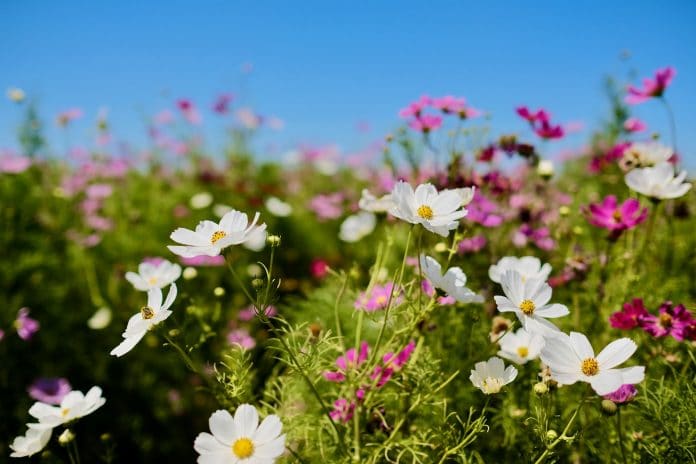One of my favorite holidays in Japan and Buddhism occurs not once, but twice a year around the spring and fall equinox: O-higan. The holiday literally translates as “the other shore.” In Buddhism, this is a frequent metaphor for parting this shore of ignorance, hatred and greed to the other shore of nirvana, peace and so on. The holiday arose in Japan because the spring and fall equinoxes are both pleasant times of the year, and people can devote more free time to things like Buddhism. It’s during Ohigan that devout Buddhists often reflect and renew their efforts toward the Six Perfections:
* Generosity
* Moral Conduct
* Patience
* Zeal
* Meditation/Self-Reflection
* Wisdom
On a practical level, Ohigan is also a time in Japan when people return home to their families and pay respects to their ancestors. This is a time-honored tradition, inherited from Chinese Confucian thought, and is alive and well amid fast-paced, modern life in Japan. People gather at the graves of their ancestors, clear any debris, pour water over the headstone, and light incense as an offering and sign of appreciation.
Such a ritual may seem unusual but it is rooted in a simple expression of gratitude. In the Analects of Confucius, one of his disciples, Cengzi, is quoted as saying:
“When they are careful (about their parents) to the end and continue in reverence after (their parents) are long gone, the virtue of the people will return to its natural depth.” (trans. Charles A.C. Muller, [1:9]).
Thus, respect for one’s parents and ancestors, even after death, is deeply ingrained in Japanese and Asian culture generally. Through reflection on all that one’s parents did to raise them, one develops a deeper appreciation and deeper respect. This is not always easy when one’s parents are difficult, and there are limits, but it is an important virtue to cultivate in the eyes of Confucius.
I often struggled with this myself as a rebellious, young adult. I had a stormy relationship with my parents, each for different reasons. But when I gave birth to my own daughter, and helped her survive fevers, the transition to solid foods, walking and injuries, I soon felt a deeper appreciation toward my own parents. I realized that I too was a helpless child once and because of my parents, I am alive and well now.
So while reverence for one’s parents and ancestors through visits to the grave may seem backwards or strange to Westerners, it is no different than visiting our parents’ grave and leaving flowers from time to time. The only difference is that we don’t have culturally ingrained holidays for such visits. If we developed greater respect for our parents, perhaps our children would developer similar habits for us when we are aging or passed on.
Likewise, in Buddhism, if we hold grudges against others, or fail to show gratitude to those around us, how can we possibly cross over to the other shore.
Happy Ohigan everyone!




































[…] bunnies – my favourite holiday of them all!), then there is Nowruz, the Iranian New Year, and Ohigan, a buddhist holiday celebrated in Japan. In Mexico, at the exact moment of the equinox, it looks […]
Thanks for this great explanation of O-higan. Much appreciated.